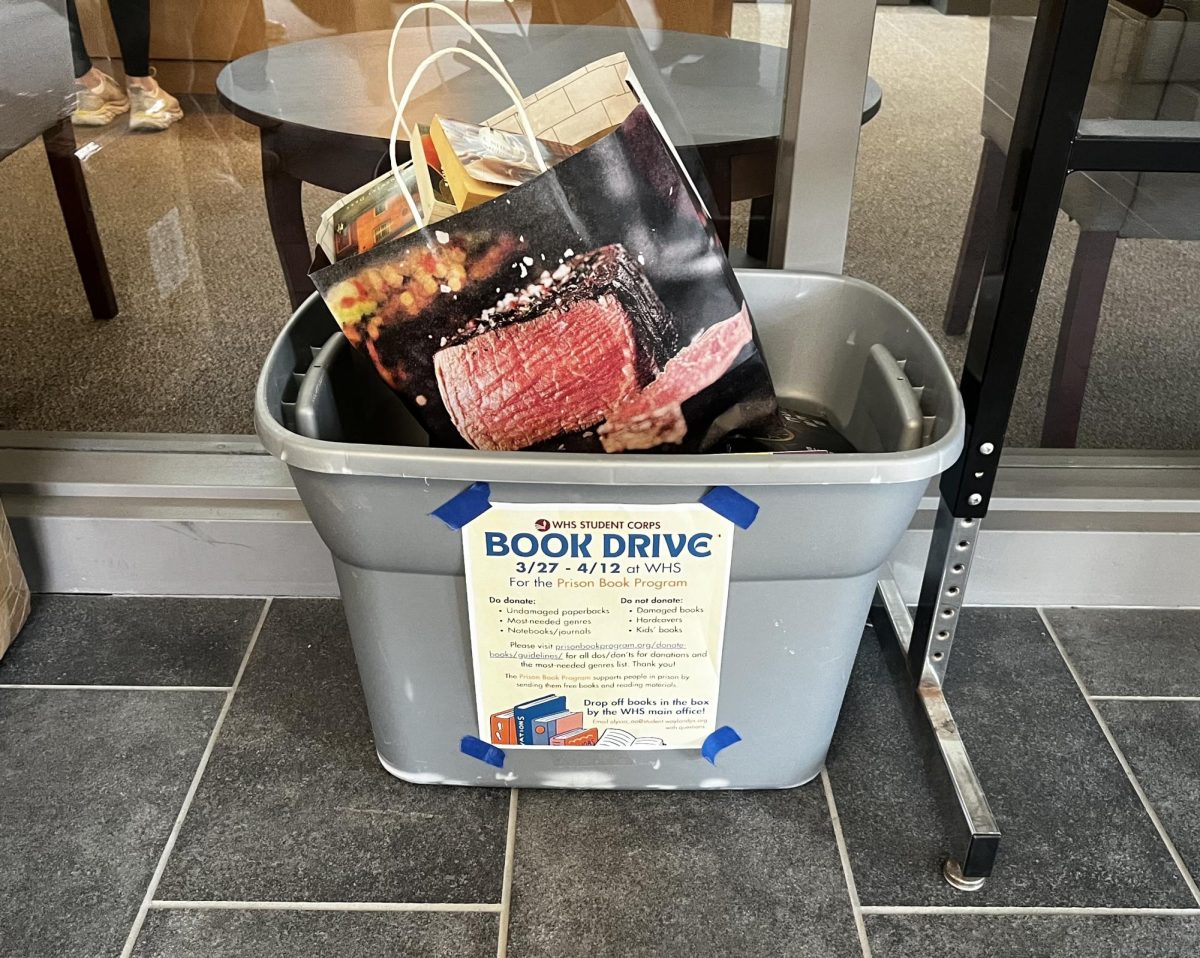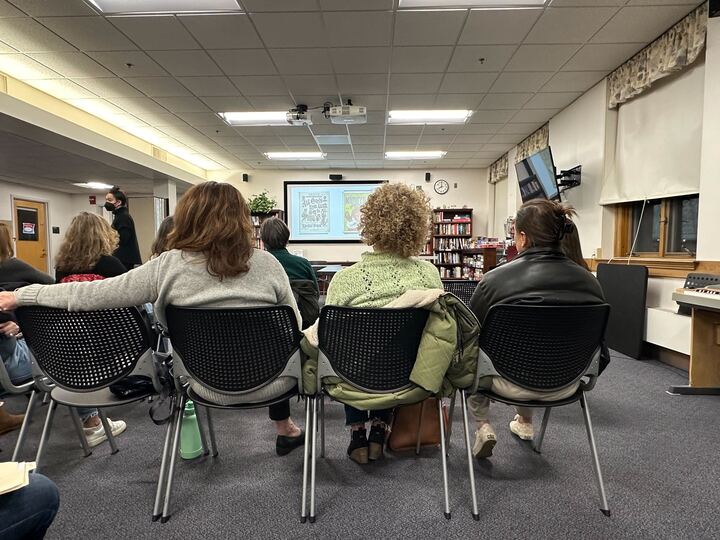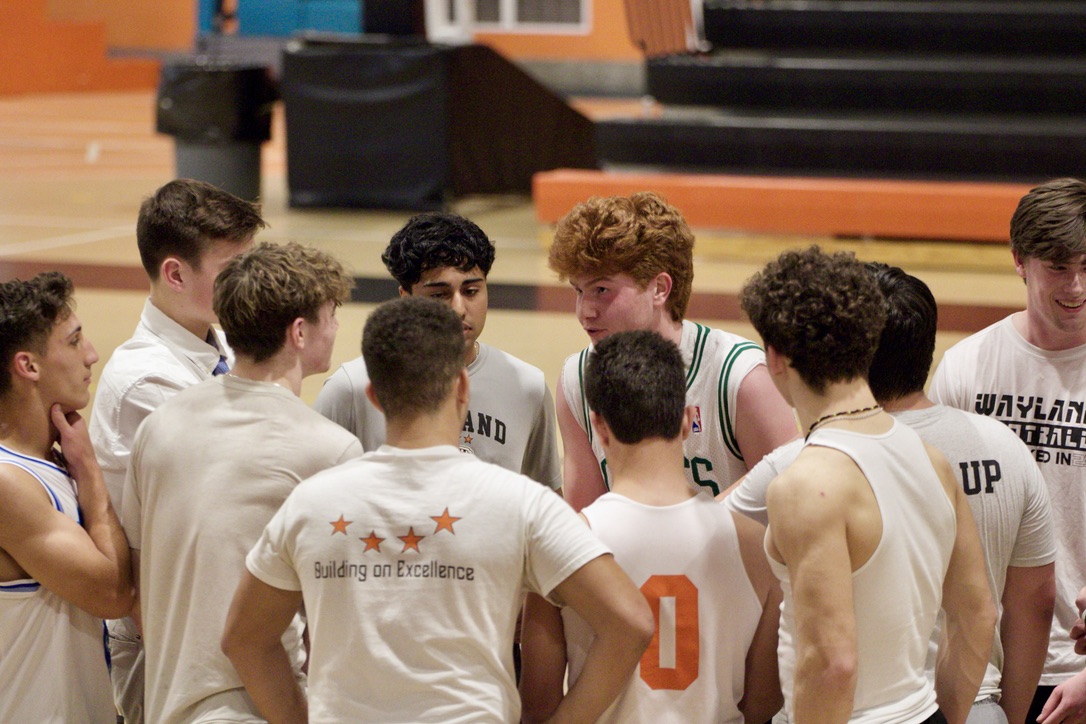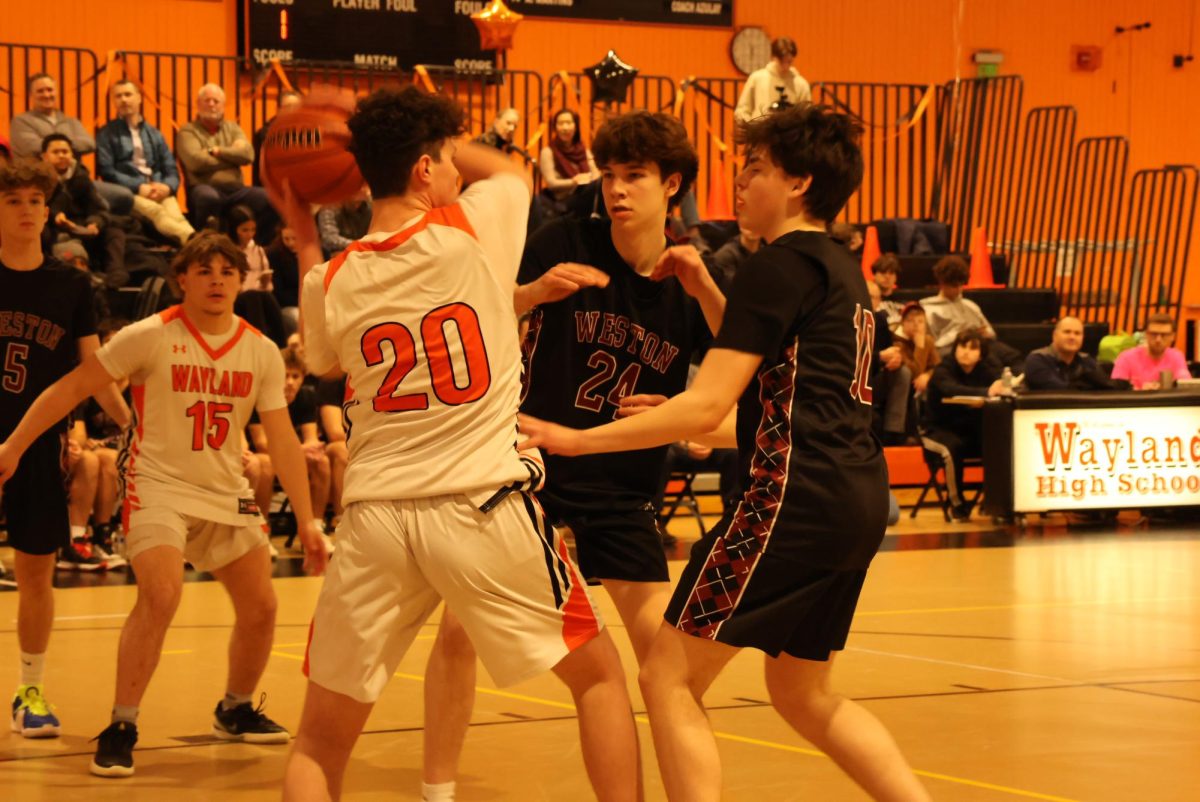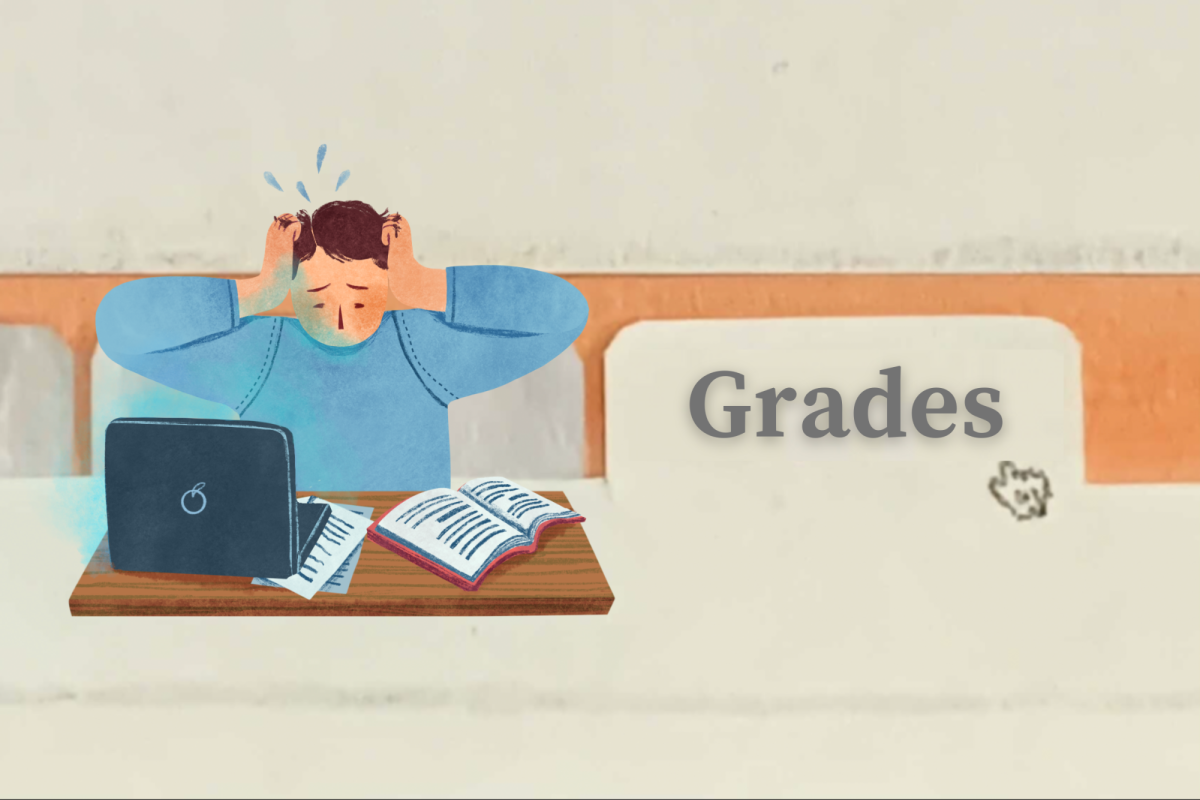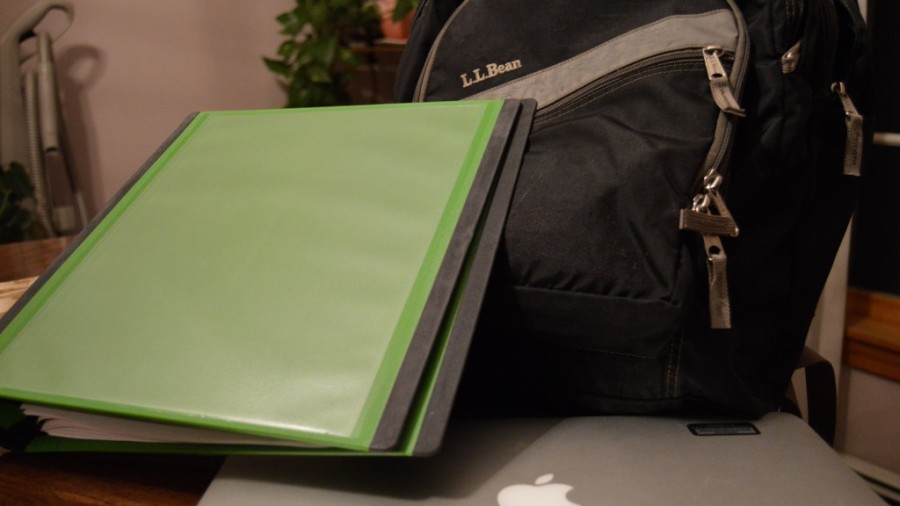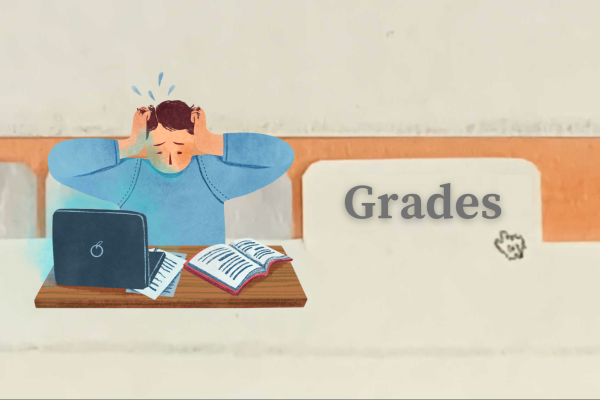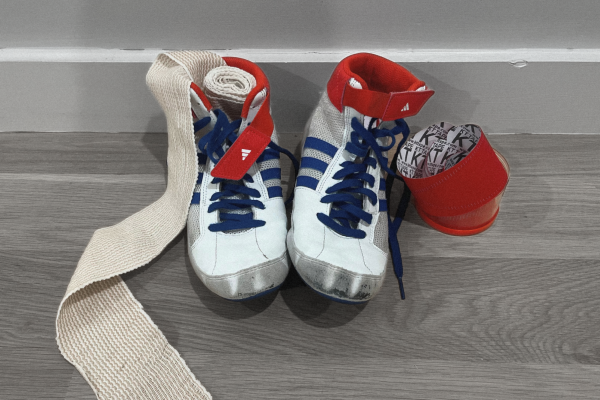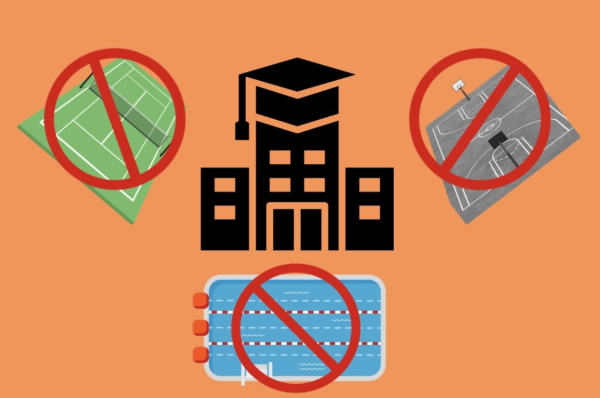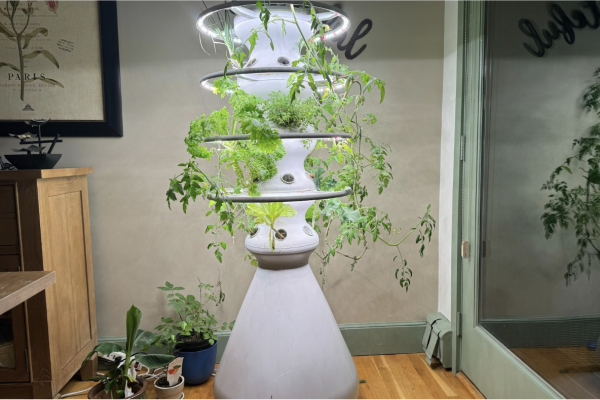Freshman Survival Guide
Pictured above are some common school supplies that are helpful for organization. WSPN gives helpful tips to freshmen on how to survive freshman year.
September 21, 2015
Freshman year was a few years ago for us, but we still remember how intimidating starting high school was. As a senior (Thomas) and junior (Nandita) respectively, we have some experience with high school and surviving freshman year. Here are few tips on how to survive freshman year without much hassle.
Binders: Organize all of your binders the same way. One way to do this is with three labeled dividers: Notes, Classwork, Homework and Tests/Projects. The key is to put the assignments in the correct section chronologically. If you forget to place too many assignments in the assigned section, it can throw you off. After midterms, it is helpful to take out your binder’s contents and leave them in a safe place at home. (Note that some teachers want you to keep material in your binder from past terms.) This system will help you when studying for midterms and finals when you’ll need easy access to your notes.
Planner: The school used to give out planners but doesn’t anymore, so you’ll have to make your own or buy one. Using a Google document is really helpful. (Be aware that some teachers do not like phones out in class, so laptops are usually the better option.) Always write down your homework so you don’t forget an assignment. Human error will often get in the way when you try and remember your assignments off the top of your head. Also take note of the due dates of assignments. You might have an unpleasant surprise when you walk into class one day and realize that you got the due date wrong. You might get a zero for an assignment or be forced to wing a test.
Assignments: We recommend that you complete essays and homework on Google Drive. It’s so easy to stay organized using digital folders. Try creating a digital folder for each semester. Within each semester folder, have a set of folders for each of your classes. You should number by assignments to maintain chronological order. (When using Google Drive, use zeros in front of single digit numbers, so it won’t get confused with the order. For example, label it “01. Biology Summer Work”.) Google Drive provides a reliable place to keep assignments organized. If you forget to bring your computer to class or it dies, you can borrow a friend’s and print out your homework or essay.
Questions: Don’t be afraid to ask questions in class. That’s what teachers are there for! Don’t be embarrassed; other people probably have the same question but are too afraid to ask. Especially in language class, many are afraid to ask questions because teachers want them to only ask in that language. No one is going to judge you if you make a mistake when asking a question in another language. It’s one of the steps to getting better at it. Also, if you ask multiple questions and still do not understand a concept, many teachers are more than happy to schedule a time to go over it with you one-on-one. Teacher schedules are posted outside/inside the department offices, so you can visit them during matching study periods, lunches and potentially after or before school.
Studying: Plan out when you are going to study for a test or quiz several days ahead. Also, go see your teacher to ask any questions about the material several days before the test/quiz .If you do not understand a concept, ask questions or meet with a teacher before the next test/quiz is announced. This is important because new concepts often build upon old concepts, so not understanding one concept might make learning new concepts harder in the future. You can sign up for a tutor in the Academic Center if you need consistent help in a certain subject.
Social life: Join clubs! This is the best way to make friends, since the other kids in the clubs probably have similar interests. Also, don’t be afraid to make friends with the upperclassmen; they are great resources for information as you go through high school.
Guidance counselor: Meet with or email your guidance counselor if you have a question about your schedule, your class workload, college or any other issue. They are all very helpful and are often the best source of information. Make sure you schedule meetings in advance through Ms. Fratto because they usually have tight schedules.
Peer mentor: Try to get to know your peer mentor well. It is always nice to know upperclassmen as a freshman. Show up to freshman seminar and feel free to message them over Facebook or send emails. Peer mentors love it when underclassmen want to know more about the high school.
Laptop: Always charge your laptop before you go to bed. Make sure it’s ready to go when you wake up. Keep the laptop in your bag while it is charging overnight so that you can’t forget to unplug it and leave it at home. Also, turn off your computer instead of keeping it in sleep mode all the time. Your computer needs a break! Make sure you use your laptop on a flat surface and keep it ventilated. We recommend that you get a laptop case. Also, don’t drink or eat anything messy next to your computer because that’s how accidents happen.
We know that you’re going to have an amazing year. If you have any more questions about high school, feel free to email us at [email protected] or [email protected].


